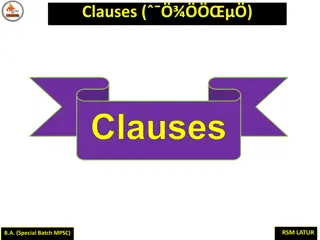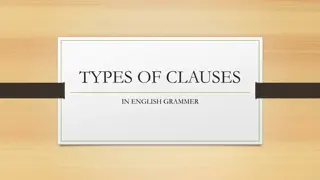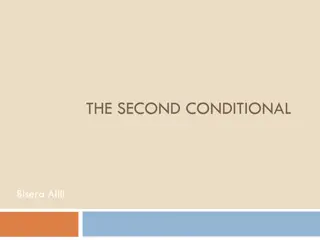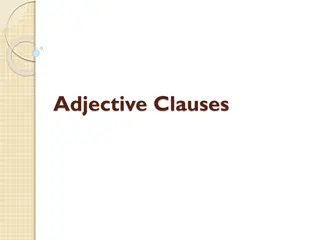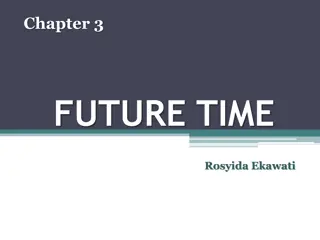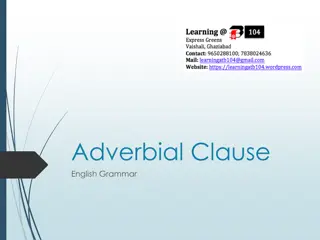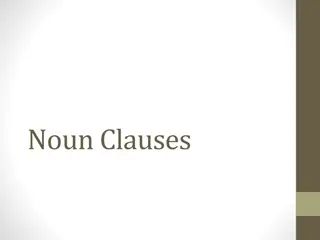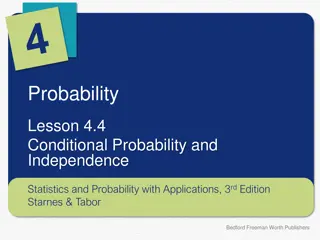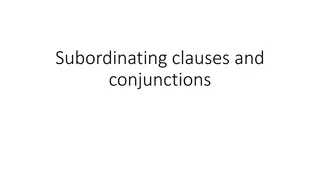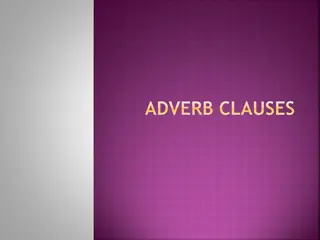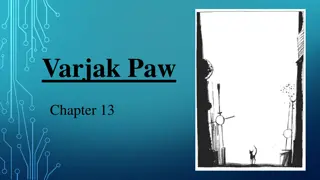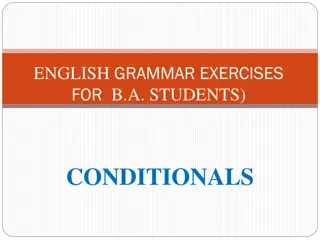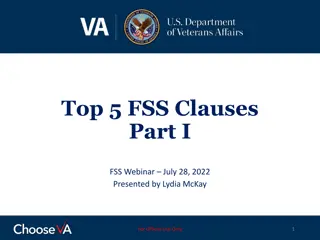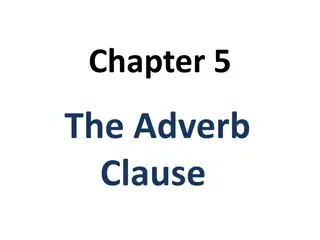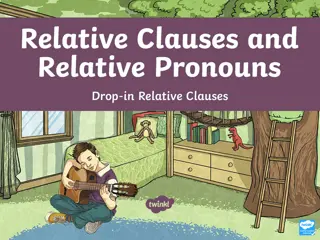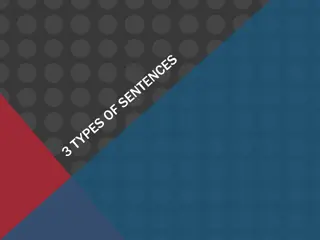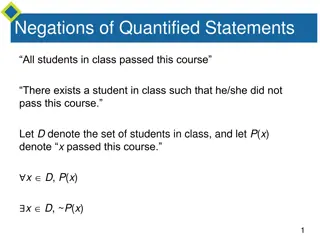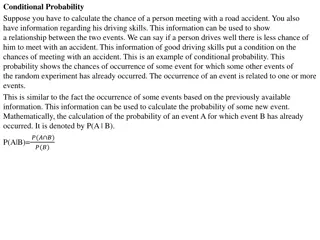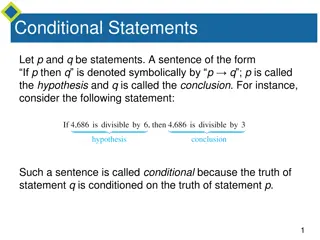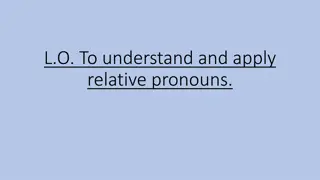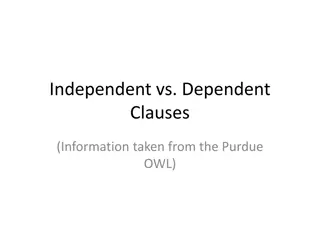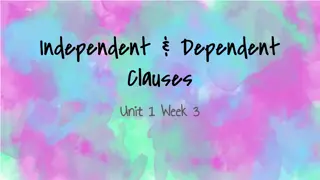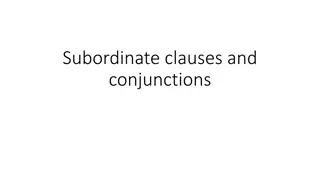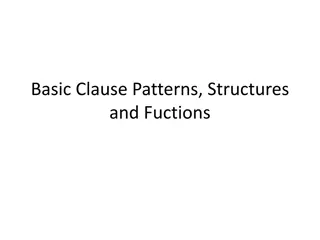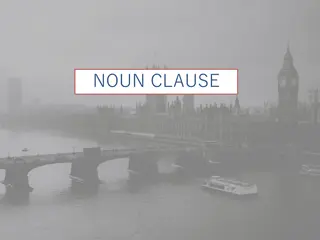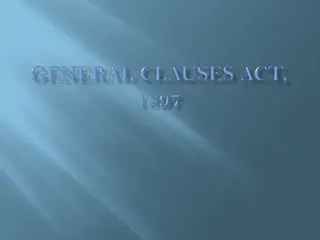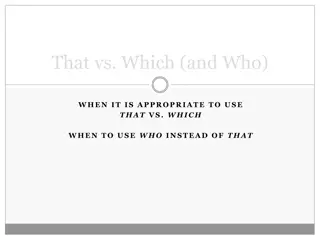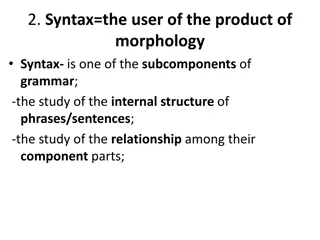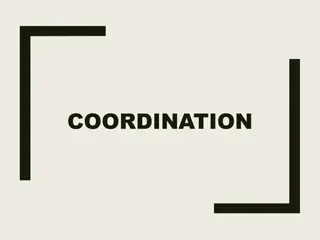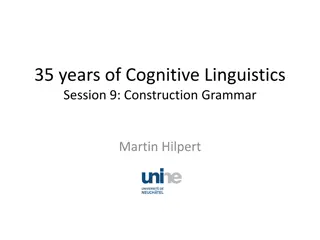Understanding Conditional Clauses in English Grammar
A conditional clause is a type of adverbial clause in English grammar that states a hypothesis or condition using a conditional clause in the simple present and the main clause in the future tense. This type of clause uses modal verbs like would, should, could, will, may, might, or can. Conditional clauses express conditions where one event depends on another, and they can be interchanged with the main clause in a sentence. They are used for future possibilities or situations that may never occur or for actions in the past that cannot be changed.
Download Presentation

Please find below an Image/Link to download the presentation.
The content on the website is provided AS IS for your information and personal use only. It may not be sold, licensed, or shared on other websites without obtaining consent from the author. Download presentation by click this link. If you encounter any issues during the download, it is possible that the publisher has removed the file from their server.
E N D
Presentation Transcript
Conditional Clause Conditional Clause A clause is a group of words which includes a subject and a finite verb.A clause functions as an adjective,an adverb or a noun. In English grammar ,a conditional clause is a type of adverbial clause that states a or hypothesis orcondition that may be real or imagined.Its form uses a conditional clause in the simple present and the main clause in the future tense.The main clause will use a modal like would,should,could,will,may,might or can.Here are some examples:-
Examples of Conditional clause 1.If I sleep now,I will be up all night. 2.I ll help you if you promise to work hard. 3.If I had the money ,I would lend you. 4.If I study ,I ll pass the exam. 5.If I studied ,I would pass the exam. 6.If I had studied ,I would have passed the exam. 6,If we had practiced,we could have won the match. All the above sentences have two parts -a main clause and a subordinate clause. For example-In the first sentence ,the two parts are- 1.I ll be up all night-Main clause 2.If I sleep now-Subordinate clause
All the above mentioned examples show that ifone thing happens , then another thing will happen.For ex:If I sleep now ,I will be up all night.You can refer to all these sentences as Conditional clause or an if clause .It simply means that one thing is required for somethingelse to occur or exist.
1Conditional clauses are also called if clauseas they begin with if.It can come before or after the main clause. 2The conditional clauses express conditions.In the sentence one event follows from the other or depends on the other. 3In other words ,what we express in the main clause,depends or is conditional on what we express in the subordinate clause.
4.We can usually change the order of clauses in conditional sentences.For ex:-we can say: If you promise to work hard ,I ll help you.We can also say :I ll help you if you promise to work hard. 5.In general we separate the two clauses by a comma if we begin with an if clause.We don t use a comma when we begin with the main clause.
6.We use conditionals for situations that might happen in the future or situations that might never happen.We use conditionals for action in the past that can t be changed.


